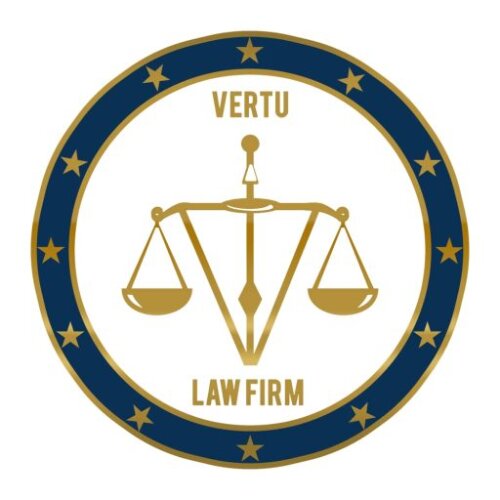Best Admiralty & Maritime Lawyers in Lubumbashi
Share your needs with us, get contacted by law firms.
Free. Takes 2 min.
List of the best lawyers in Lubumbashi, DR Congo
About Admiralty & Maritime Law in Lubumbashi, DR Congo
Admiralty and Maritime Law, largely referred to as Maritime Law, is an internationally recognized field of law that governs legal matters relating to navigable waters such as seas, harbors, and rivers. In Lubumbashi, this area of law applies primarily to Lake Tanganyika and its associated rivers, dealing with matters concerning shipping, cargo, sailors, and maritime trade. With the Democratic Republic of Congo being a signatory to several maritime conventions, it is essential to understand its jurisdictional aspect and the impact of international maritime agreements.
Why You May Need a Lawyer
The realm of Admiralty & Maritime Law is complex, covering several areas such as shipping, commercial trade, piracy, and insurance claims among others. You may need a lawyer if you are involved in business transactions related to the shipping industry, disputes regarding maritime contracts, matters about maritime injuries or even disputes about environmental damages caused by sea vessels. Navigating these complexities often requires the knowledge and expertise of a professional, particularly when international laws intersect with local ones.
Local Laws Overview
While international agreements guide much of Admiralty & Maritime Law in DR Congo, local laws also play a significant role. The country's merchant shipping code, for instance, governs activities related to shipping, including the registration and licensing of vessels and maritime labor rules. Other related pieces of legislation include the Congolese Labor Code, which covers maritime employee contracts, and the Environmental Protection Law, which has provisions related to maritime pollution control. It is essential to have a comprehensive understanding of these regulations as well as how they intersect with international norms.
Frequently Asked Questions
What is the role of a maritime lawyer?
A maritime lawyer provides legal advice and representation on maritime-related disputes, contracts, and policies. Their scope of work includes dealing with issues related to shipping and transport, maritime injuries, maritime insurance, and maritime economic activities.
Can an international maritime law override local regulations?
In most circumstances, international maritime law does not override local regulations. However, where the two come into conflict, international agreements to which DR Congo is a party and has enacted appropriate domestic legislation take precedence.
Which is the enforcing institution of the maritime laws in Lubumbashi?
The Merchant Shipping Administration, under the Ministry of Transport and Communication, is primarily responsible for enforcing maritime laws. However, other governmental bodies also play a role depending on the nature of the issue.
What can I do if my maritime rights are violated?
If your maritime rights are being violated, it is recommended to consult with a maritime lawyer who can advise you on possible courses of action. This might include negotiations, filing a legal complaint, or pursuing the matter in court.
Can maritime law protect the rights of seamen?
Yes, maritime law has explicit provisions to ensure the safety, fair treatment, and adequate pay of seamen. These protections extend to local and international waters, further amplified by the Maritime Labour Convention (MLC).
How does maritime law affect maritime insurance?
Maritime Law significantly affects maritime insurance as it provides the jurisprudence basis upon which marine insurance agreements are based. It defines the liability regime in case of loss, the nature of compensations, and the treatment of disputes.
Do maritime laws change often?
While the core principles of maritime law remain stable, changes do occur, often in response to international developments, new technology, and changes in global maritime practices. Hence, always consider updated advice from a legal expert.
Is legal representation obligatory in maritime disputes?
While not obligatory, given the complexity and international nature of maritime law, having professional legal representation is often crucial for achieving favorable results in disputes or negotiations.
What is the relevance of maritime law concerning environmental issues?
Maritime law is very significant in managing environmental issues. It stipulates regulations regarding pollution from vessels, the illegal dumping of waste into seas and rivers, and marine ecological conservation.
Do maritime laws apply to private boat owners and operators?
Yes, maritime laws apply to all water vessels, including private boats. These laws cover aspects such as vessel registration, licensing, safety, and conduct at sea.
Additional Resources
For additional resources, consider reaching out to the Ministry of Transport and Communication or the Merchant Shipping Administration, which are primarily responsible for maritime affairs. Additionally, international resources like International Maritime Organization (IMO) documents and the guidelines of the Maritime Labour Convention (MLC) can offer further insights.
Next Steps
If you require legal assistance in the field of Admiralty & Maritime, start by identifying a proficient maritime lawyer or legal firm with demonstrated experience in maritime law in DR Congo, specifically in Lubumbashi. Make sure they have excellent command over international maritime agreements and local maritime codes. Act promptly, ensuring that you do not forfeit your rights due to any statutory time limits.
Lawzana helps you find the best lawyers and law firms in Lubumbashi through a curated and pre-screened list of qualified legal professionals. Our platform offers rankings and detailed profiles of attorneys and law firms, allowing you to compare based on practice areas, including Admiralty & Maritime, experience, and client feedback.
Each profile includes a description of the firm's areas of practice, client reviews, team members and partners, year of establishment, spoken languages, office locations, contact information, social media presence, and any published articles or resources. Most firms on our platform speak English and are experienced in both local and international legal matters.
Get a quote from top-rated law firms in Lubumbashi, DR Congo — quickly, securely, and without unnecessary hassle.
Disclaimer:
The information provided on this page is for general informational purposes only and does not constitute legal advice. While we strive to ensure the accuracy and relevance of the content, legal information may change over time, and interpretations of the law can vary. You should always consult with a qualified legal professional for advice specific to your situation.
We disclaim all liability for actions taken or not taken based on the content of this page. If you believe any information is incorrect or outdated, please contact us, and we will review and update it where appropriate.











